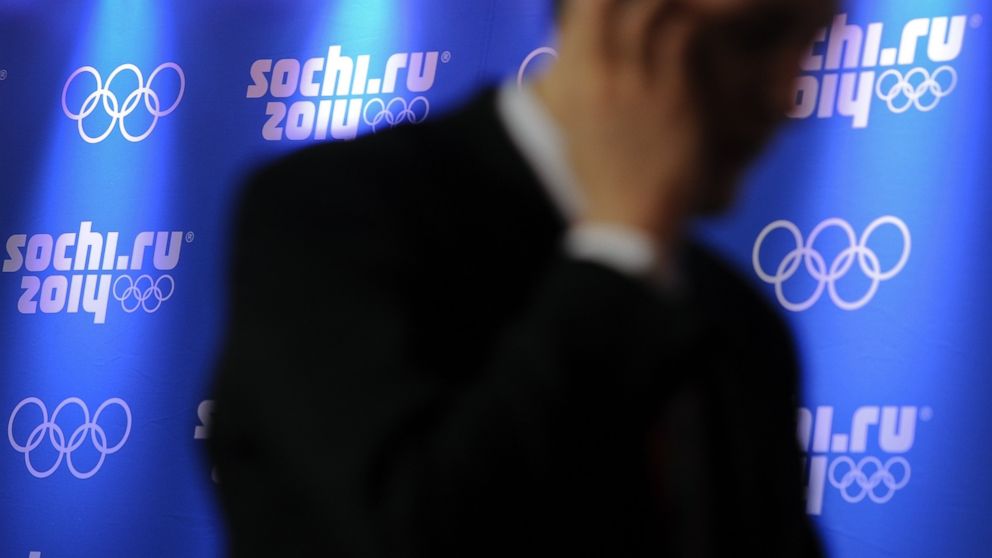- Read about it by Clicking on it
-
Huawei allegedly hacked BSNL network: Government
Huawei allegedly hacked BSNL network: Government
read more about it....
The Other Sochi Threat: Russian Spies, Mobsters Hacking Your Smartphones

While the world focuses on the threat of terrorism
to the Winter Olympic Games in Sochi, Russia this month, spectators in
the Black Sea town will face a stealthier threat to their digital lives
from Russian spies and tech savvy mobsters, experts and security sources
told ABC News.
Read about it by Clicking on it
Russian law allows its intelligence agents to do electronic snooping on
anyone inside the country, meaning the phones and personal computers of
thousands of foreign visitors, including Americans, are fair game. But
even outside of the law, Russian organized crime groups also are well
known for hacking smartphones and email for information they use for
illicit profit.
"It's the same as during the Beijing Games -- the host government,
private enterprise and individuals pose a big threat to people traveling
to the Sochi Games, in respect to monitoring conversations on cell
phones and intercepting texts and emails," one Olympic security
contractor told ABC News last week.
Read about it by Clicking on it
"It should certainly be expected," agreed a senior U.S. intelligence
official, who told ABC News that the influx of tens of thousands of
American spectators and dignitaries will be "an intelligence bonanza"
for both Russian spies and organized crime groups.
Russian President Vladimir Putin's domestic spying agency, the Federal
Security Service (FSB), will snoop for indicators of terrorist activity.
His intelligence services will also target dignitaries for intelligence
collection, as they do around the world.
Mobsters hack devices for passwords and data to facilitate digital
larceny and, at times, can be used as proxies by the FSB for any number
of tasks, sources said. For instance, a recent cybersecurity report by private firm CrowdStrike
fingered Russian intelligence as likely involved with, or at least
aware of, the work of a hacker group known as "Energetic Bear," which
has targeted Western energy interests.
Read about it by Clicking on it
U.S. officials generally are required to trade in their regular
smartphones for "clean" devices when traveling to countries such as
Russia and China, which have the most sophisticated spy operations. The
assumption of government security officers, based on past experience, is
that smartphones operating on foreign networks are easily comprised by
foreign intelligence services.
The Russian electronic surveillance program, called SORM, rivals any
American domestic FBI or NSA surveillance program -- with one key
difference: the Russians don't need the formality of a court order to
suck up all of the targeted person's data, which is archived for three
years.
Security services are, as required by law, hardwired into the
communications infrastructure here so they don't need the phone and
internet companies to give them the data.
NBC, which is telecasting the Games as the U.S. rights holder, has
warned employees that emails sent or received while in Sochi may not be
private, according to sources.
"The Russians will own your communications when you go there. The only
way to guard against that is to take a clean device and use a temporary
email address," Joel Brenner, who served as U.S. National
Counterintelligence Executive from 2006-2009, told ABC News.
Smartphones can be penetrated and comprised anytime they are out of the
owner's hands, such as passing through an airport security screening
checkpoint, or remotely by hackers through compromised cell signal
towers or illicit mobile relay devices.
"The risk is the theft of personal data stored on a smartphone: your
contacts, banking info, etcetera," the security contractor working on
the Sochi Games said. "Criminal elements have ready access to the cell
towers in Russia." Several current and former U.S. officials confirmed
that organized crime figures in Russia are believed to have some access
to cell towers in Sochi.
Read about it by Clicking on it
"That possibility exists," a U.S. official involved in securing the
Games warned last week about the threat posed by both spy and hacker. "I
wouldn't say everyone who goes will be considered a high value
cyber-target, but there is a high likelihood that it will happen."
No comments:
Post a Comment